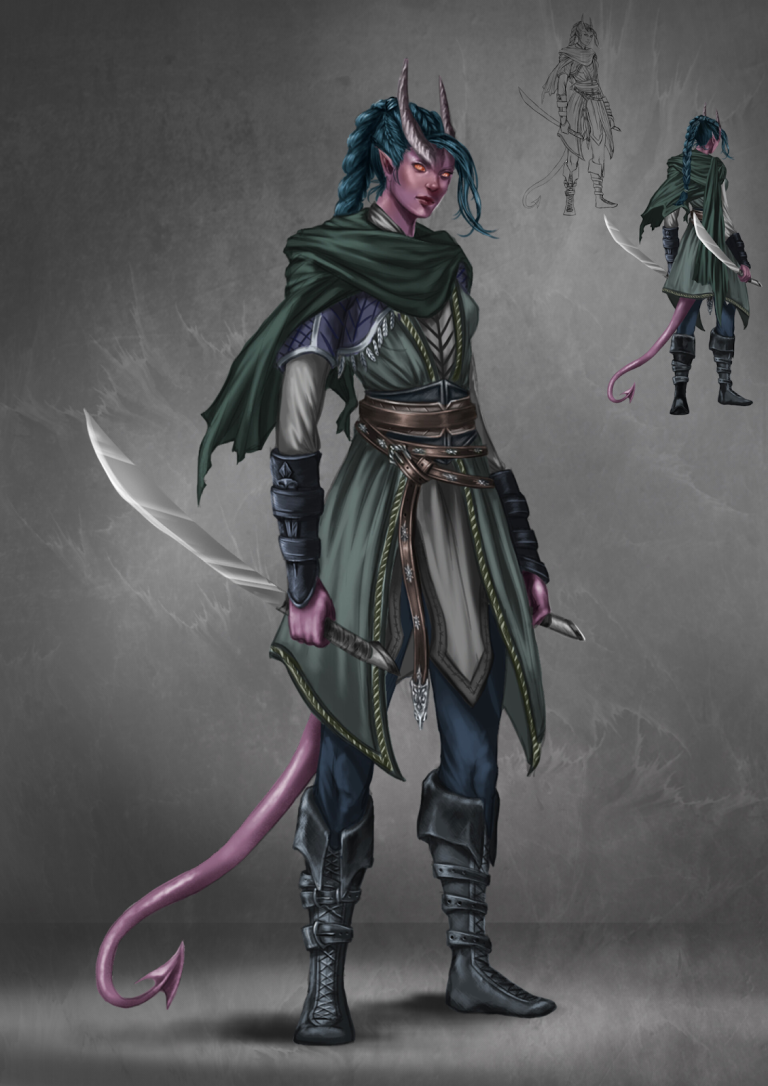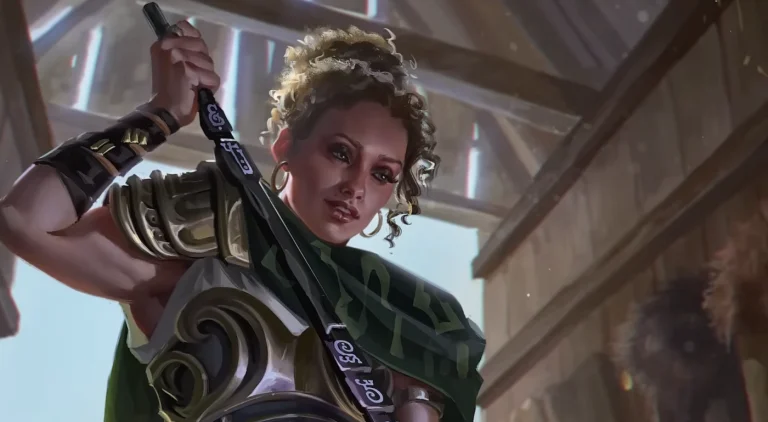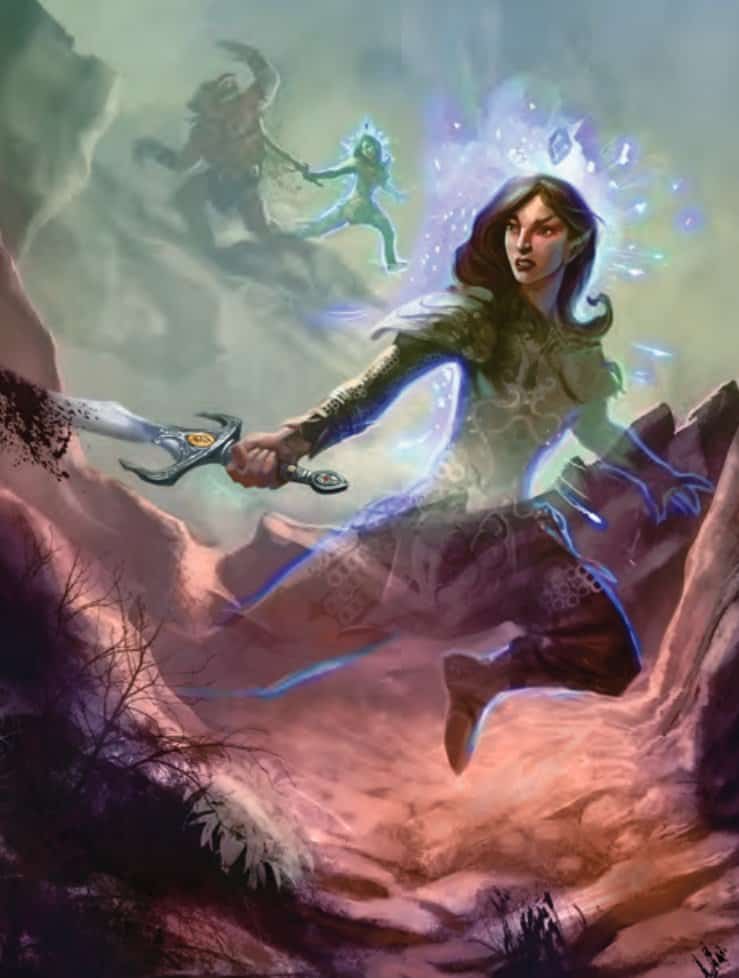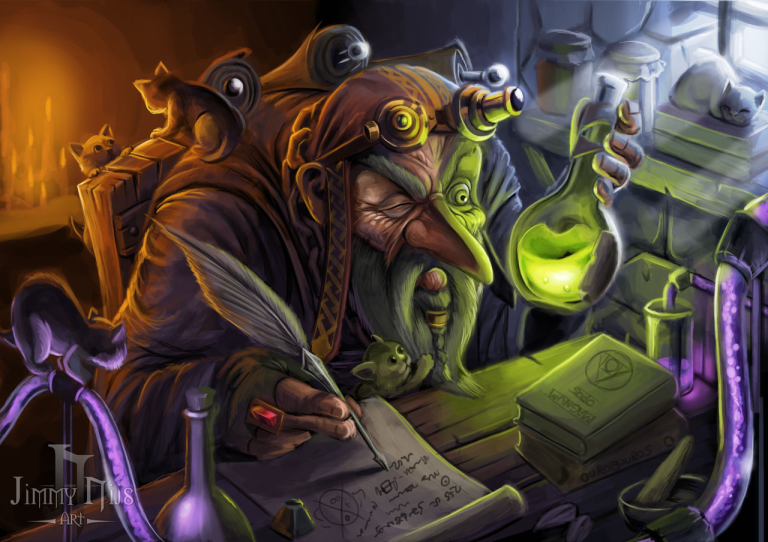D&D 5e: Mastermind Rogue Guide
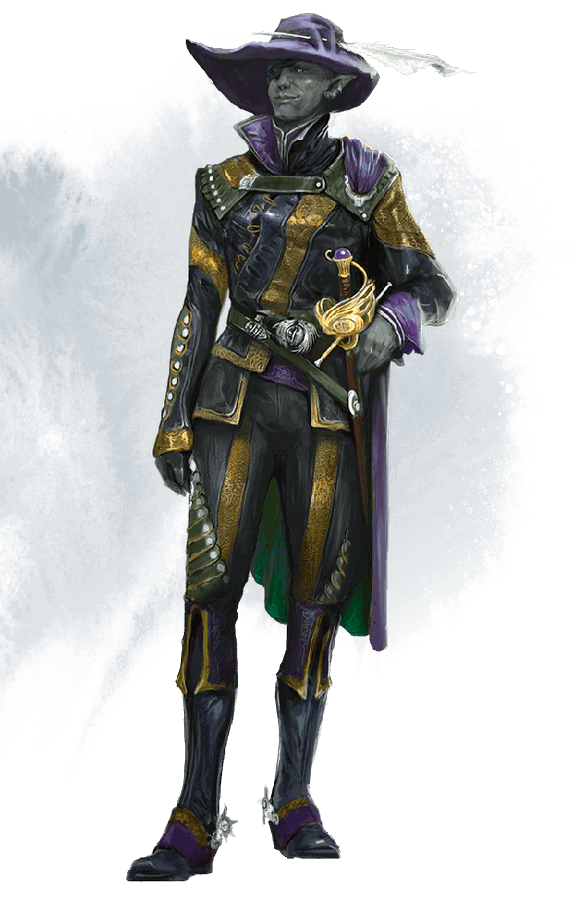
D&D 5e: Mastermind Rogue Guide
Role in the Party
The Mastermind Rogue is a social form of rogue centered around secrets, spying, and intrigue; unfortunately, it’s one of the weaker rogue subclasses out there. It was much better before Tasha’s Cauldron of Everything, but redundancy with a feature added in that book made it a worse option.
You can expect to be a standard rogue doing normal rogue things like sneaking and stabbing, but you’ll have several extra proficiencies and can use the power of friendship to help your allies now and then.
Epic
Good
Meh
Bad
The Mastermind Rogue subclass is found in both Sword Coast Adventurer’s Guide AND Xanathar’s Guide to Everything. Click here to pick up your own copy of Xanathar’s Guide to Everything OR click here to pick up a copy of Sword Coast Adventurer’s Guide!
Mastermind Rogue Features
Master of Intrigue
When you choose this archetype at 3rd level, you gain proficiency with the disguise kit, the forgery kit, and one gaming set of your choice. You also learn two languages of your choice.
Additionally, you can unerringly mimic the speech patterns and accent of a creature that you hear speak for at least 1 minute, enabling you to pass yourself off as a native speaker of a particular land, provided that you know the language.
This is meant to be a ribbon feature, but three tool proficiencies, two languages, and the ability to mimic accents are pretty good for a ribbon feature. This is more useful in a campaign where you have the opportunity to do disguises and forgeries, so you’ll get less use out of this in some campaigns.
Master of Tactics
Starting at 3rd level, you can use the Help action as a bonus action. Additionally, when you use the Help action to aid an ally in attacking a creature, the target of that attack can be within 30 feet of you, rather than 5 feet of you, if the target can see or hear you.
You can give someone advantage as a bonus action, and if it’s for an attack, you can do it from a distance; this is pretty good. There are unfortunately three problems with this: it’s incompatible with the Steady Aim feature from Tasha’s that gives advantage to you on your attack, and you likely deal the most damage in a single hit out of anyone in the party, so advantage is best spent on yourself, and finally, you have Cunning Action competing for your bonus action.
Sometimes you already have advantage, so you can just hand it off to someone else; then the great weapon master fighter can have advantage to hit with their 2d6+15 damage greatsword swing. Still, your Cunning Action is competing for your bonus action.
Even though this feature has some alternatives that are superior to it, it’s still useful in every fight and is useful in almost every situation; the only way it would be useless is if every ally within 30 feet of you already had advantage to hit the enemies they wanted to hit.
Insightful Manipulator
Starting at 9th level, if you spend at least 1 minute observing or interacting with another creature outside combat, you can learn certain information about its capabilities compared to your own. The DM tells you if the creature is your equal, superior, or inferior in regard to two of the following characteristics of your choice:
Intelligence score
Wisdom score
Charisma score
Class levels (if any)
At the DM’s option, you might also realize you know a piece of the creature’s history or one of its personality traits, if it has any.
I don’t think I’ve ever needed to know if a creature’s intelligence, wisdom, charisma score, or class levels were equal, superior, or inferior to my own. You can also just infer all four of these things from context clues like their profession or just how they speak. This is just awful.
Misdirection
Beginning at 13th level, you can sometimes cause another creature to suffer an attack meant for you. When you are targeted by an attack while a creature within 5 feet of you is granting you cover against that attack, you can use your reaction to have the attack target that creature instead of you.
I rarely see dungeon masters treat creatures as cover, let alone adjudicate which creatures count as what form of cover and when in a consistent and predictable manner; even if you remind them that creatures can work as cover, this basically lets you use someone as a meat shield, but it costs your reaction and only works on one attack, then if the enemy has multiple attacks, they can just pelt you to death with them, and you can’t even use Uncanny Dodge to reduce the damage. Enemies can also just move to the side to get a better angle and ignore your cover. Lastly, even if everything works and you have cover, the enemies will probably just shoot the person in front of you who doesn’t have +2 to +5 armor class.
I briefly wondered if this could combine with Sentinel to give you reaction sneak attacks, but the attacker has to be within 5 feet of you, and the positioning of everyone involved just doesn’t let this work. Awful feature.
Soul of Deceit
Starting at 17th level, your thoughts can’t be read by telepathy or other means, unless you allow it. You can present false thoughts by making a Charisma (Deception) check contested by the mind reader’s Wisdom (Insight) check.
Additionally, no matter what you say, magic that would determine if you are telling the truth indicates you are being truthful if you so choose, and you can’t be compelled to tell the truth by magic.
Mind reading sometimes comes up, but the ability to be immune to it has never been that important in any campaign I’ve played in. Sure, some enemies can’t know what your plans are by reading your mind, but they can just get that information from your other party members. Or they could just use normal scrying. Or fly way above you at night and look down at your camp with a telescope. Or any other methods of spying that don’t involve reading your mind specifically.
As a final insult, this doesn’t stop creatures from necessarily knowing your thoughts; they can use Dominate Person on you or a similar feature and then command you to tell them what you were thinking. This feature is terrible; it would be a fine ribbon to add alongside something else, but we haven’t had a single feature of actual substance since level 3.
Strengths
Specifically, at level 3, you might be one of the stronger and more versatile rogues out there thanks to your extra proficiencies and ability to give advantage to anyone in the party with a bonus action. If you have a second rogue in the party or even just a fighter with Great Weapon Master, they will thank you all the time.
Weaknesses
Your only thing of actual substance is the bonus action help action. Nothing else is very useful, so your main level 3 feature might as well be your only feature. You also still have the typical weaknesses of a rogue such as lower hit points, a lower armor class, and at high levels, low damage.
Best Race Options
A rogue who wants to specialize in deception can benefit greatly from the Changeling race. You can instantly change your appearance, and your disguise kit proficiency is still useful if you want to give your allies a disguise.
Githzerai have Detect Thoughts; every social character wants this spell since it’s the best real mind reading spell out there. The Shield spell is also handy, but you don’t have slots for it and it’s somewhat redundant with your Uncanny Dodge.
Halflings are a solid race overall, but if you insist on using your level 13 feature, the Lightfoot halfling lets you hide behind bigger creatures, and you can hide as a bonus action. If you’re spotted, at least you can use that bigger creature as cover and redirect attacks to them.
Choosing the Right Skills
Perception is the most important skill in the game, and rogues are often tasked with Stealth activities; you likely want both proficiencies, and they’re great places to put your Expertise feature.
Sleight of Hand is the spell used to steal things; you’ll want this skill if that’s a thing you want to do. Acrobatics is useful for escaping grapples and doing agility-focused physical things, and Athletics can help you do climbing or other strength-based mobility activities.
Insight, Persuasion, and Deception won’t use your highest ability score, but a socially focused rogue wants proficiency in all of these.
Fitting Feats
Ritual Caster lets you add some magical rituals to your toolbox, so you can use the powerful Find Familiar for scouting and espionage.
Elven Accuracy (elf only, unfortunately) will let you boost an odd Dexterity and hit almost every time you make an attack if you have advantage. Your own bonus action help action is also potent on a party member who has this feat.
Eldritch Adept lets you pillage some warlock invocations, from Devil’s Sight to Misty Visions.
Optimal Backgrounds
A socially focused rogue will excel with the Charlatan background, but it’s more suitable for an evil character than a good one. False Identity lets you avoid consequences if you’re seen doing a crime since you can switch to your other identity.
Criminal is the classic rogue background; be sneaky, do crimes. Your Criminal Contact may or may not be useful depending on their nature, but work with your dungeon master to tie it into the campaign.
Courtier is an appropriate background for a rogue raised in a noble family or any other prestigious upbringing; Court Functionary will give you solid background information on governments and nobles and give you leads for doing shady business.
Multiclassing Options
If you’re frustrated by the fact that you need a high dexterity score and can’t have the charisma needed to truly be a master of all social skills, starting as a Hexblade Warlock at level 1 lets you attack with charisma and grants you a big array of other benefits, including medium armor, shield proficiency, Booming Blade, and the Shield spell; this lets you keep your dexterity at a cozy 14 and then pump up charisma as you take rogue levels and get ASIs. It’s a little frustrating how Hexblade is always the “best” multiclass option,
If you don’t mind increasing strength and leaving your dexterity at 14 to use medium armor and a shield, starting your career with 2-5 levels of Barbarian will turn you into a phenomenal strength-based rogue. You don’t need Steady Aim if Reckless Attack already gives you advantage on every attack, so you can more easily justify spending that bonus action on a help action instead, and Rage covers your defensive weaknesses very well. This multiclass combo is also extremely silly.
The Booming Blade cantrip, Find Familiar spell, and Shield spell are enough to justify a one level Wizard dip. This is best taken after level 5, so your Booming Blade provides an immediate offensive benefit when you use it.
Would I recommend playing a Mastermind Rogue?
I can give this a decent recommendation in a low to mid-level campaign, but you don’t get anything useful after level 3. Unless you know a specific high-level feature will be useful, or unless taking the help action as a bonus action appeals to you a ton, I would pick a different rogue subclass. The barbarian multiclass is how I would personally play a Mastermind, just because I want to give both myself and an ally advantage every round, and there’s a ton of wacky roleplay potential there.



